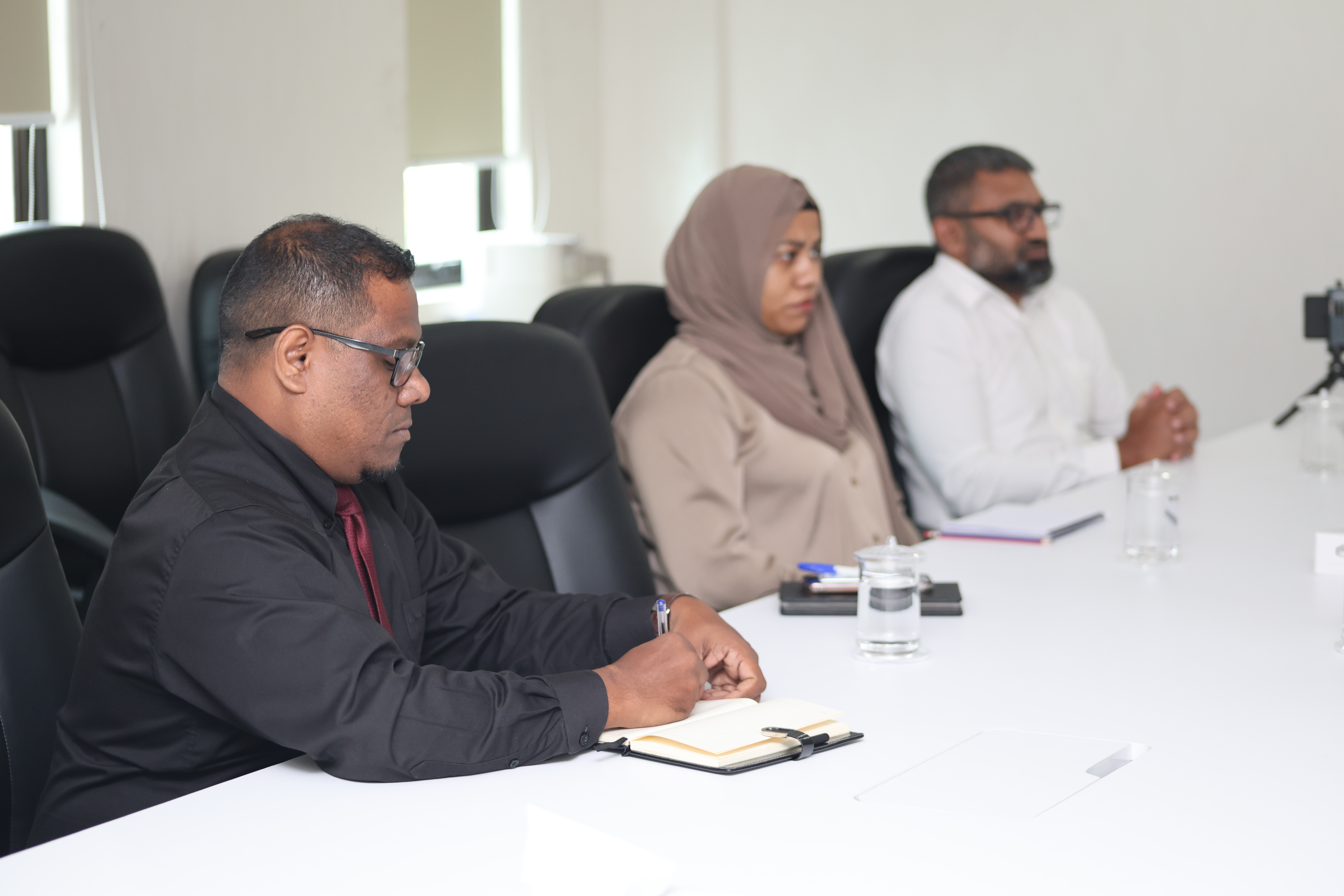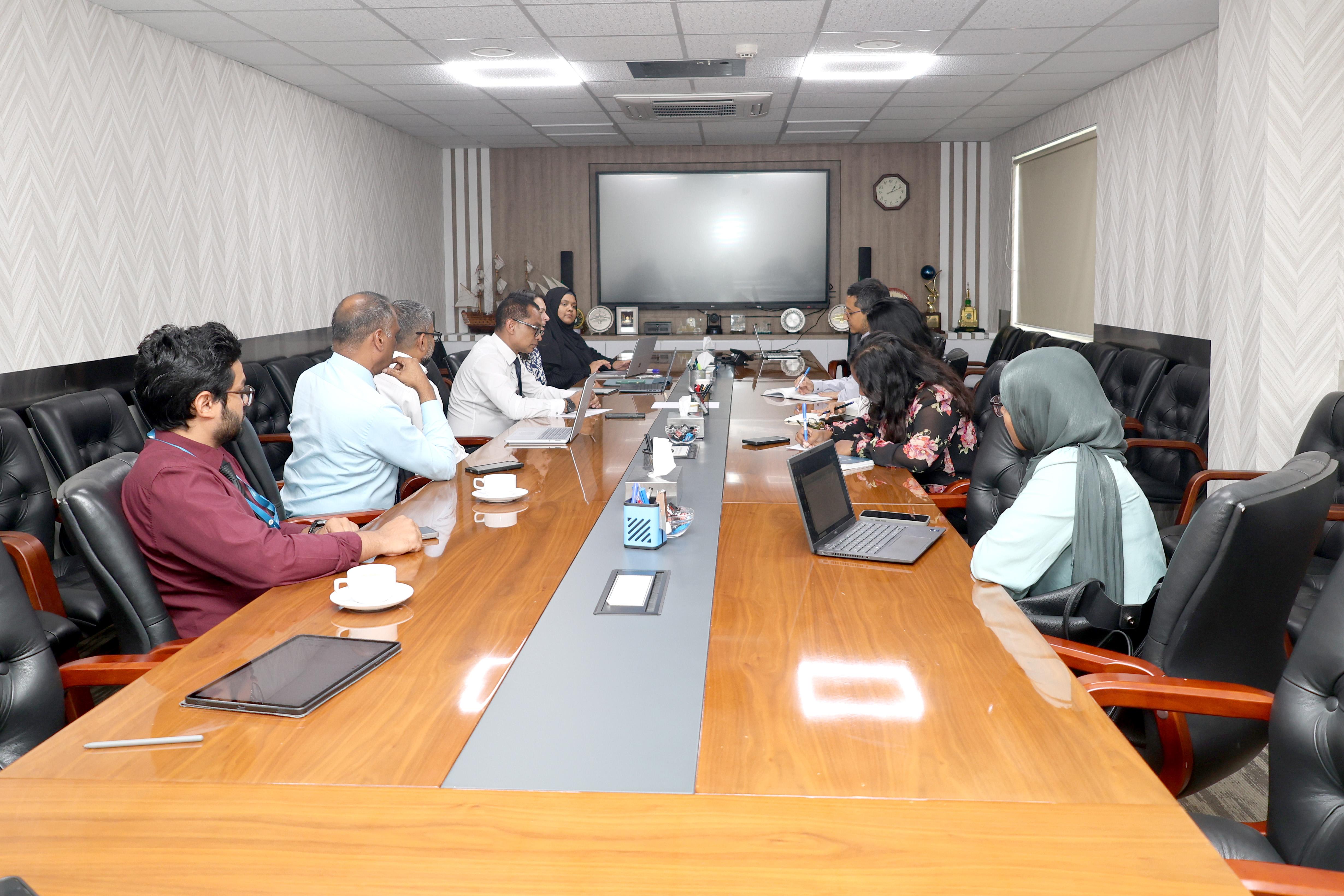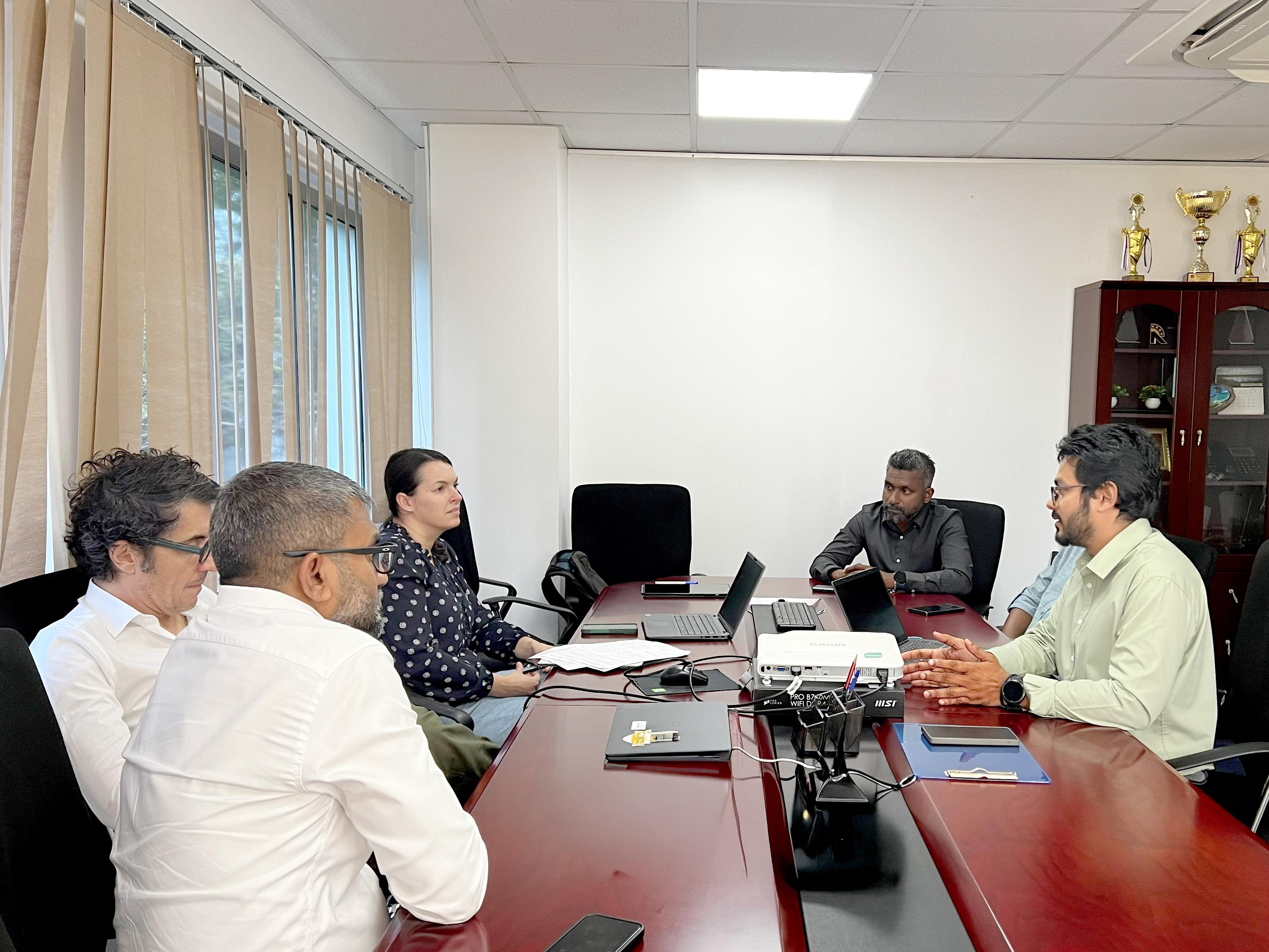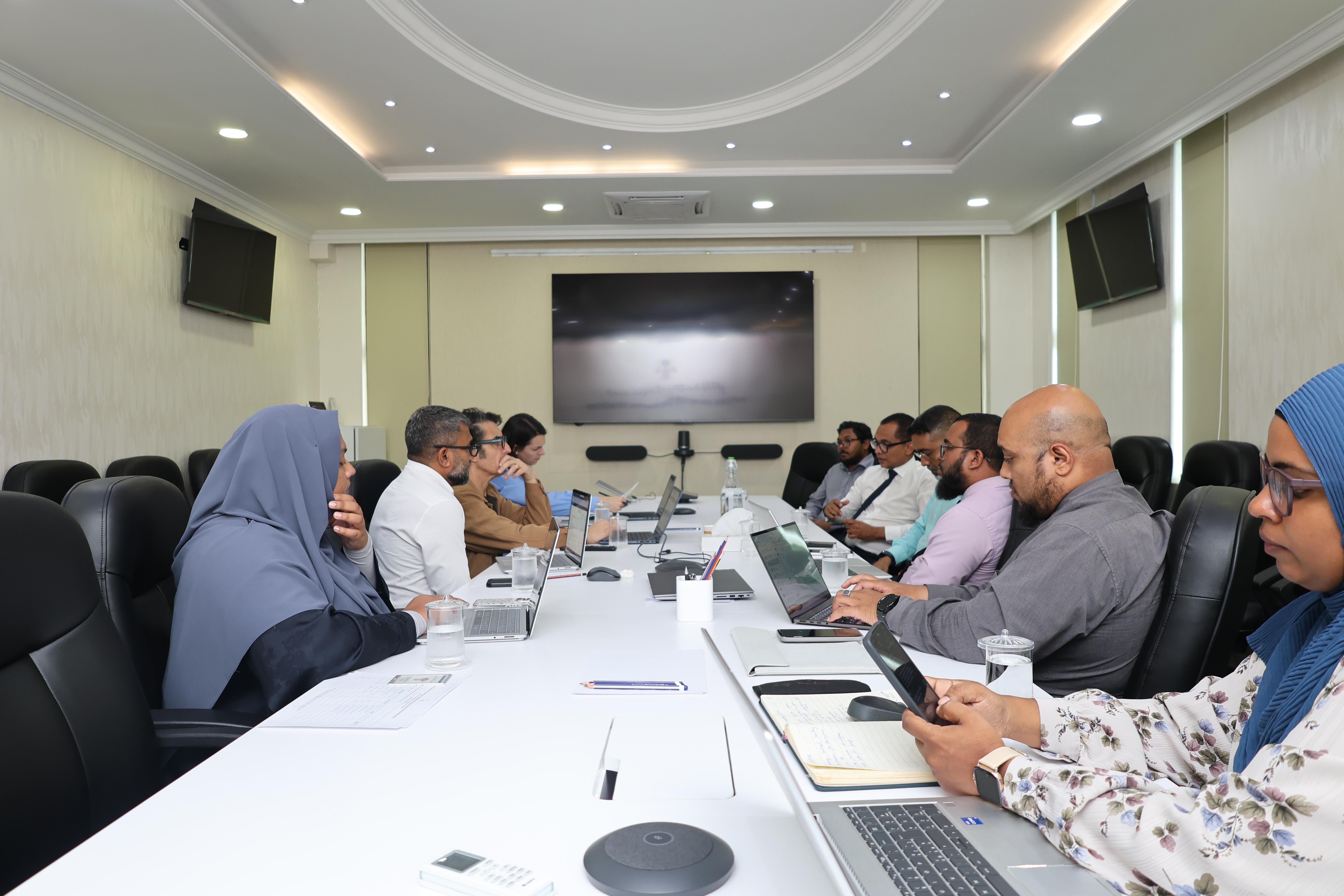News
A Pilot Reef Restoration Project Using PAM Technology Commences Updated
08 April 2025
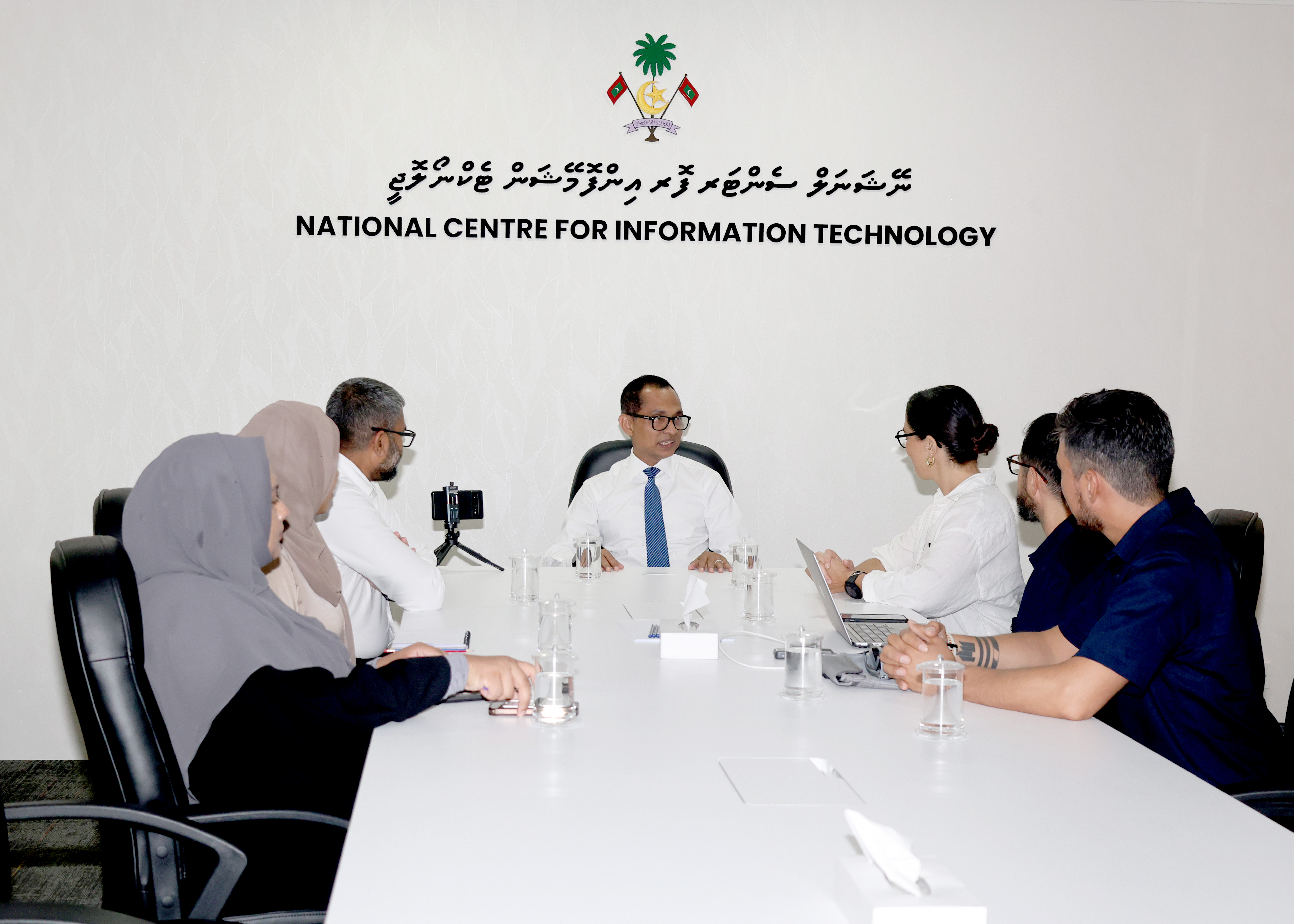
A pilot reef restoration project using passive acoustic monitoring (PAM) technology
in the Rasfari Reef has commenced. The project began with a kickoff meeting
held in the National Centre for Information Technology with the Minister of
State for Homeland Security and Technology, Dr. Mohamed Kinaanath, and the
D’MMADD project team with the experts from Ocean World of Sound from the USA. The
team consisted of Mr. Ray Santisteban (Program Coordinator), Ms. Andrea Luengas
(Field Diver & Community Engagement), and Mr. Jacob Rubio (Field Specialist).
The team will train technical staff from the Environmental Protection Agency,
Maldives Marine Research Institute and students from the Maldives National
University’s College of Fisheries and Ocean Sciences.
During the meeting, the team briefed Dr. Mohamed Kinaanath about the PAM
technology and their experience in restoration and conservation activities in
the Mesoamerican reef. They shared similarities between the Maldives and Mexico
regarding the challenges of monitoring vast ecosystems. Dr. Kinaanath explained
the president’s vision of technology and innovation for the country's
development and highlighted the resource constraints for monitoring in the Maldives.
Passive Acoustic Monitoring (PAM) is a technique used to study and monitor
underwater environments by recording and analyzing sound. This method is
particularly valuable for observing marine life, from crustaceans to whales and
dolphins, which rely heavily on sound for communication, navigation, and
foraging. PAM involves deploying acoustic sensors to capture sounds over
extended periods. These recordings help scientists understand the behavior and
distribution of marine species and the impact of human activities, such as
shipping and construction, on the marine ecosystems. With continuous and noninvasive
monitoring, PAM can play a crucial role in marine conservation and research in
the Maldives, where reef systems are widely dispersed.
The pilot will be carried out at Rasfari Reef, a popular diving and
snorkelling site in the North Male’ Atoll, a protected area in the Maldives.
This area is known for its abundant marine life, including Manta ray
aggregations, diverse coral reefs, rich biodiversity, and beautiful underwater
landscapes. Coral reefs are critical to Maldives’ economy and coastal resiliency.
The Kaafu Atoll Rasfari Reef was significantly damaged when a cargo ship ran
aground the reef in 2021.
The pilot falls under subcomponent
3.2, “Leveraging digital technologies and tools for climate adaption,” of the
D’MADD project, which the World Bank funds.








